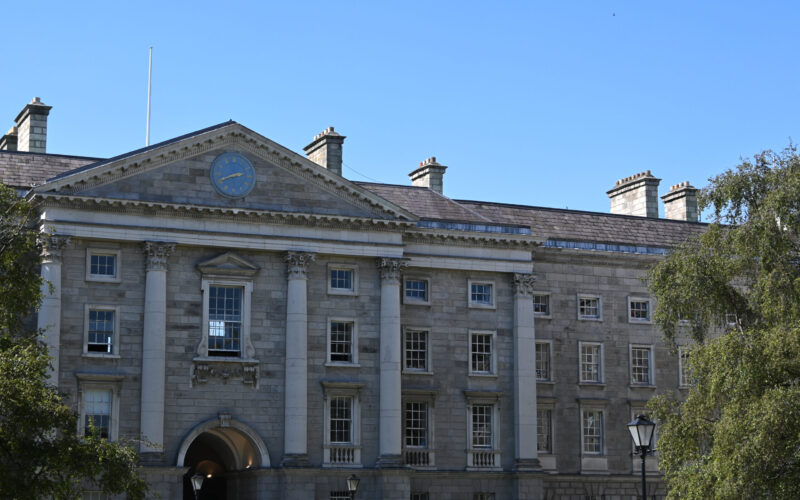Five Trinity researchers have been awarded European Research Council (ERC) Proof of Concept grants worth €150,000 each to fund innovation in areas such as electromagnetic interference (EMI) shielding, gene therapy and sustainable food sharing.
The grants fund innovative research and are awarded based on breakthrough potential, the proposed approach of the research and the capacity and commitment of the applicant. The grants are highly competitive.
The winners from Trinity were Prof Valeria Nicolosi from the School of Chemistry, Prof Tríona Lally from the School of Engineering, Prof Anna Davies from the School of Natural Sciences, Prof John Goold from the School of Physics and Dr Matthew Campbell from the School of Genetics and Microbiology.
Nicolosi, who has now won five ERC Proof of Concept grants and was in the top one per cent of the most-cited academics for 2021, will investigate the economic and technical feasibility of developing electromagnetic interference shielding materials for use in wireless communications via readily scalable additive manufacturing technologies.
In a press statement she said: “With the fast development of wireless communication, especially the new 5G technology, electromagnetic interference (EMI) shielding is becoming a challenge and high-performance EMI shielding materials are urgently needed for controlling electromagnetic radiation pollution”.
Lally will design software aimed at assisting medics in diagnosing patients at risk of stroke and choosing treatments that minimise cost and the need for surgery.
She said: “Over 50% of strokes occur in asymptomatic patients due to the rupture of often undetected ‘vulnerable plaques’. This project, VASCOLL, aims to generate the first software tool that can determine the risk of plaque rupture in a non-invasive way using a particular type of MR imaging.”
Davies aims to expand the SHARE IT platform which is designed to improve the sustainability of city-based food sharing economies.
“This grant will bring our novel sustainability impact assessment toolkit for food sharing — SHARE IT— to a wider audience, identifying the impacts created by food sharing initiatives as well as aggregating these impacts for food retailers donating surplus food and for local governments who govern food sharing activities”, she said.
Goold’s research will develop a soil fertility monitoring and forecasting method based on statistical physics. This could be used by farmers, agricultural organisations and land use planners to adapt to climate change.
“This grant concerns a highly novel application of statistical physics to address one of the most pressing issues of our times – climate-induced land change. The project is the vision of Dr Francesca Pietracaprina, a Marie Curie Fellow in my group at Trinity, and an expert in complex disordered quantum systems”, he said.
“She hopes to identify large regions of land in these images that are under threat of desertification due to climate change, which would be particularly useful for the agricultural economy.”
Campbell’s will focus on developing a new, localised approach to gene therapy that aims to restore normal biological function and prevent blindness caused by age-related macular degeneration.
He said: “Our project—Opti-AAV—will allow us to screen a completely new form of gene therapy for one of the most common causes of blindness in the world, age- related macular degeneration.”
“This new project is really exciting in that it will enable us to undertake a cutting-edge project with potentially significant therapeutic rewards for patients in the future,” he added.
In the press statement, Provost Linda Doyle congratulated the researchers. She said: “These awards, which have gone to a diverse array of ERC teams in Trinity, confirm the enormous potential of frontier research to address some of the greatest challenges facing our planet”.
“They will support exciting innovations – societal and commercial – which have emerged from the discoveries of ERC teams, and which were made possible by investment in fundamental research”, she added.
Dean of Research and previous winner of an ERC Proof of Concept Grant, Professor Wolfgang Schmitt also praised the researchers.
“I am pleased to extend my warm congratulations to the five Trinity awardees in this round of the Proof of Concept scheme. Valeria, Triona, Anna, John and Matthew are fantastic mentors and leaders who consistently excelled in their research.”






